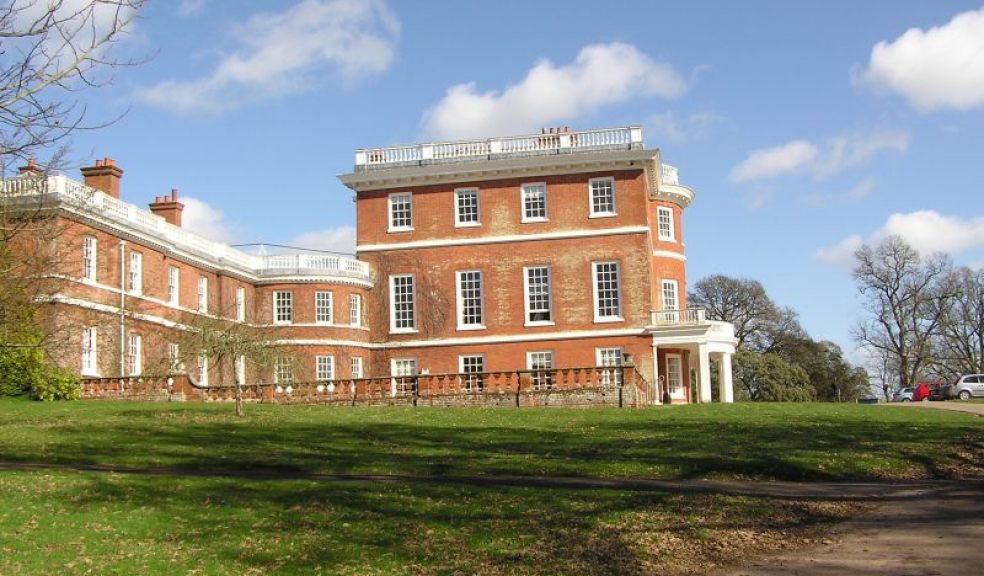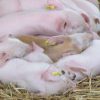
Bicton College@Dartington – a new partnership
Bicton College, Devon’s specialist land-based college, and The Dartington Hall Trust are to join forces to establish a new centre of educational excellence on the Dartington Hall estate.
‘Bicton College@Dartington’, a new and exciting partnership, will open up access to land-based education in Devon, strengthen the county’s reputation as a global leader in agricultural innovation and help to lay the foundations for a more sustainable farming future.
Alex Stevens, Senior Food and Farming Adviser, NFU in the South West commented "The NFU whole- heartedly support this learning and research platform that will provide the farmers of today and tomorrow with information crucial to making agriculture more resilient to rising fossil fuel costs and limited availability in future. This is great news for the industry.
A groundbreaking initiative for the future of farming
Bicton College will take the tenancy of Dartington Hall’s Parsonage Farm and create a unique second Devon campus, which will deliver a wide range of courses for students aged 14 upwards, from across the South West, at all educational levels including higher education. Many of these students will be resident at Dartington, heralding a welcome influx of new learners to the campus and the local community. Bicton College@Dartington will bring together two strong and respected learning institutions. It will also combine two very similar philosophies on how farming needs to develop and evolve if it is to meet future challenges such as the rising cost of energy, fuel and fertilisers.
As well as delivering the full range of courses covering agriculture, horticulture and countryside management, the new partnership will use its combined innovation credentials to explore the possibilities for a more sustainable approach to farming.
The Bicton College@Dartington partnership will involve world-leading research and experimentation into the potential opportunities presented by ‘Fossil Fuel Free’ farming. Projects currently being considered include:
- Anaerobic digestion to produce Biogas for electricity generation and digestate as an alternative to non-organic fertiliser;
- Biogas-powered farm machinery;
- Solar power generation;
- Filtrated plant oil as an alternative vehicle fuel;
- Biomass boilers for heating.
The farming system also evaluates new and emerging techniques such as:
- The possibility of once-a-day milking to reduce energy requirements and improve cow health;
- Productive hedgerows and boundaries – particularily in the South West where they form a relatively high percentage of land usage;
- Optimising genetic traits to increase the efficiency of animal production and the quality of food.
Other pioneering techniques, such as new approaches to soil management and animal health, are expected to form part of an evolving college curriculum.
Experts are predicting a looming crisis for food production as pressure mounts on the supply of traditional fuel sources, this focus on sustainable farming techniques will help to put Devon at the forefront of international sustainability research.
Two organisations - One Heritage
Since the 1920s, Dartington has been a pioneer of agricultural experimentation and new practice. Its founders, Dorothy and Leonard Elmhirst, were visionaries with a passion for knowledge and a commitment to social justice. They used their great wealth and influence to create a cultural centre dedicated to the principles of restoration and regeneration.
Over the years, what became known as the Elmhirsts’ ‘Dartington Experiment’ has helped to develop radical new approaches to cattle breeding and to revolutionise commercial egg production. All this has been achieved through a deep underlying belief that farming should be sustainable and that it should play its part in contributing to positive social change.
The Dartington ethos remains just as strong today as it was nearly 100 years ago. Bicton College also holds a prominent place in the county’s farming past. Since first opening its doors as the Devon farm institute in 1947, it has established itself as one of the country’s leading land-based colleges. With a 166 hectare farm, purpose-built animal care centre and state-of- the-art renewable energies hub, Bicton offers a comprehensive range of further education courses in a stunning countryside location.
Like Dartington, the college is firmly committed to advancing agricultural education through the principles of innovation, sustainability and conservation. It is rightfully proud of the quality of its education offer and its success in preparing its students for employment in the rural economy.















